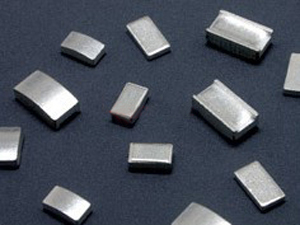Resistance Welding Electrode
Resistance welding electrodes made from our refractory metals and their alloys have a relatively high level of electrical conductivity while also exhibiting outstanding stability at high temperatures. They therefore have a considerably longer service life than conventional materials such as copper and copper alloys.
Our resistance welding electrodes made of tungsten, molybdenum and their alloys are particularly suitable for welding highly conductive materials such as copper. They are used in the processes like spot welding, projection welding, etc.
The better the joint between the tungsten electrode and the copper electrode is, the better and more reproducible the welding results will be. This is because defective joins reduce thermal conductivity and cause the electrical resistance of our tungsten electrodes, molybdenum electrodes, etc. to fluctuate.
Benefits of Resistance Welding Electrodes
Reliable join between the electrode and the shaft material
Constant level of resistance
Unvarying thermal conductivity
Reproducible electrode quality
Process stability in practical application
Long service life and uniform welding parameters

- Silver Tungsten AlloySilver tungsten alloys are used in industrial and domestic circuit breaker applications where good weld and erosion resistance is important. The higher silver grades have higher conductivity, and the higher tungsten grades have greater erosion and weld...




